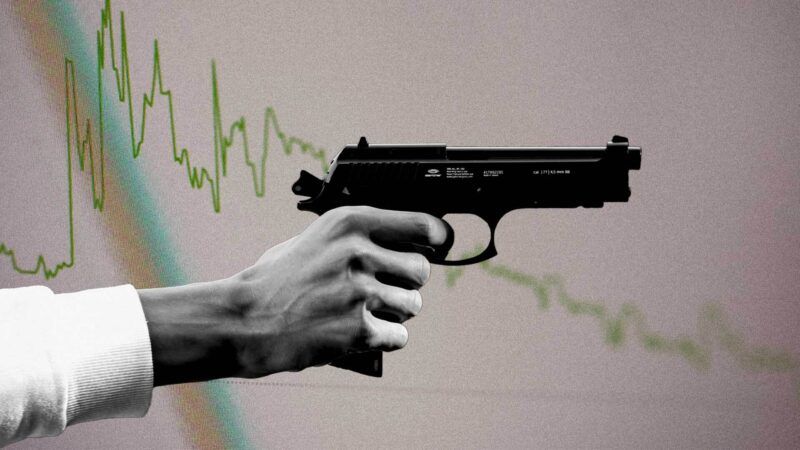Could 2025 See the Lowest Murder Rate Ever Recorded?
While it's too early to say for sure, the data are extremely encouraging.

One of the most predictable clichés in journalism is "if it bleeds, it leads"—the idea that media have a bias for salacious, grisly stories. Like many stereotypes, it's very much based in truth, which might explain why plummeting murder rates nationwide have not managed to capture national attention.
Despite a news cycle that prioritizes doom, the U.S. has seen that decline take hold over the last couple of years, with the murder rate in 2024 not just falling from the 2020 spike but returning to pre-COVID levels. That brings us to the present, and to a question: Could 2025 see the lowest murder rate ever recorded?
It's possible.
The primary caveat, of course, is that the year is not over. But the initial numbers show a record low is within the realm of possibility—an amazing turn of events, particularly when considering the murder increase five years ago, which at times felt apocalyptic.
So what are the numbers? In surveying some of the most homicide-prone cities nationwide, crime data analyst Jeff Asher recently found more than a 20 percent decrease in murders from 2024. That's encouraging in isolation, but even more so when remembering that last year, too, saw a sharp decline, and 2023 before that. A sampling: As of early May, murders were down 31.6 percent in Baltimore, 34.5 percent in St. Louis, 36.8 percent in Cleveland, 63 percent in Denver, 30.6 percent in New Orleans, 26.8 percent in New York, and 23.7 percent in Chicago.
For an even more up-to-date example, Philadelphia had recorded 88 homicides as of May 22, according to the Philadelphia Police Department (PPD) crime dashboard. On May 22, 2021, that number was 201. Indeed, 88 is the lowest year-to-date homicide number that the PPD has listed on its dashboard for this same period—January 1 to May 22—tying with years 2014 and 2015. (2014 currently holds the record for the lowest national murder rate ever recorded.)
"Running the numbers suggests that a 10 percent or more decline in murder nationally in 2025 would roughly tie 2014," writes Asher, co-founder of AH Analytics. (The numbers, thus far, are much better than that, although that could of course change.) "But it's fairly clear that a decline in the direction we're currently seeing would safely give 2025 the title of lowest US murder rate ever recorded."
A common point of pushback in the debate around crime rates is the notion that many offenses simply aren't reported to police. "That concern is a very legitimate one—for certain crimes," I wrote last year in discussing the 2024 murder rate decline. "Tracking burglaries, for example, is notoriously difficult; the bulk of people simply don't report them. Murders, however, are usually reported to police." That doesn't mean law enforcement will actually solve the crime: About 58 percent of murder and non-negligent manslaughter cases were cleared in 2023, according to data on Statista, which means for crime reporting purposes, the case was solved. While there's obviously work to be done there—and while data collection is by no means perfect—it is typically pretty hard to hide a body.
But what about the idea that we're merely coming off a murder uptick, so this is nothing to celebrate? "Fewer people are being killed than they were during a major homicide increase" is not compelling messaging, to be sure. But that's not what's happening here. We're not talking about a record decline after a precipitous surge; we're talking about a record low, period. While it's still possible that won't pan out, the fact that it's even on the table after a bloody few years is such good news that journalists might even consider leading with it.


Show Comments (87)